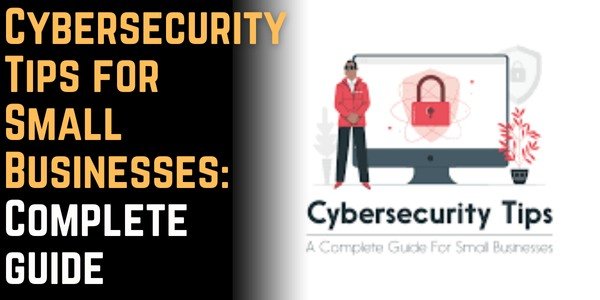Cybersecurity is no longer just a concern for large corporations—small businesses are prime targets for cybercriminals. Many small business owners underestimate the importance of strong security measures, leaving their data, finances, and customer information at risk.
In this guide, we’ll cover the best cybersecurity tips for small businesses to help protect against cyber threats, data breaches, and ransomware attacks.
Why Cybersecurity Matters for Small Businesses
Small businesses often lack dedicated IT security teams, making them vulnerable to cyberattacks. A single security breach can result in financial loss, reputational damage, and legal consequences.
Common Cyber Threats Small Businesses Face:
- Phishing Attacks: Cybercriminals trick employees into revealing sensitive information.
- Ransomware: Hackers encrypt business data and demand payment for decryption.
- Data Breaches: Customer or financial data is stolen and misused.
- Insider Threats: Employees or contractors may accidentally or intentionally leak data.
Essential Cybersecurity Tips for Small Businesses
Follow these practical cybersecurity best practices to strengthen your business security.
1. Use Strong Passwords and Multi-Factor Authentication (MFA)
Weak passwords make it easy for hackers to gain access to sensitive data.
- Use a password manager to create and store complex passwords.
- Implement multi-factor authentication (MFA) to add an extra layer of security.
- Enforce regular password updates for all employees.
2. Train Employees on Cybersecurity Awareness
Your employees are the first line of defense against cyber threats.
- Conduct regular cybersecurity training to recognize phishing scams and social engineering attacks.
- Encourage employees to verify suspicious emails before clicking links or downloading attachments.
- Create a cybersecurity policy outlining security best practices.
3. Secure Business Wi-Fi and Networks
Hackers often exploit unsecured networks to access sensitive business data.
- Use strong encryption (WPA3) for your business Wi-Fi.
- Change default router passwords and disable remote management.
- Set up a guest Wi-Fi network separate from your business network.
4. Regularly Update Software and Systems
Outdated software contains vulnerabilities that hackers can exploit.
- Enable automatic updates for operating systems, applications, and security software.
- Regularly patch security vulnerabilities in plugins and software.
- Remove unnecessary applications to reduce security risks.
5. Backup Data Regularly
A reliable backup strategy ensures business continuity in case of cyber incidents.
- Follow the 3-2-1 backup rule (3 copies, 2 locations, 1 offline).
- Use cloud storage with encryption for secure data backups.
- Test backup recovery processes periodically.
6. Install Antivirus and Anti-Malware Software
Protect business devices from malware and ransomware attacks.
- Use trusted antivirus software like Bitdefender, Norton, or Avast.
- Run regular malware scans on all company computers and devices.
- Enable firewall protection to block unauthorized access.
7. Limit Access to Sensitive Information
Restrict access to confidential data based on employee roles.
- Implement role-based access control (RBAC) to limit data access.
- Use encryption for storing and transmitting sensitive information.
- Monitor employee access logs to detect suspicious activities.
8. Secure Business Email Communications
Email is a common entry point for cyberattacks.
- Enable spam filters to block phishing emails.
- Use end-to-end encryption for sensitive email communications.
- Train employees to verify email senders before sharing confidential data.
9. Protect Business Mobile Devices
With remote work on the rise, securing mobile devices is essential.
- Require employees to use secure VPN connections when working remotely.
- Enable device encryption and remote wipe capabilities for lost or stolen devices.
- Implement mobile device management (MDM) solutions to enforce security policies.
10. Develop an Incident Response Plan
A well-prepared incident response plan helps minimize damage from cyberattacks.
- Create a step-by-step action plan for handling security breaches.
- Identify key personnel responsible for responding to cyber incidents.
- Regularly test and update the incident response plan.
Conclusion
Cybersecurity is a critical investment for small businesses. By implementing strong security policies, employee training, and regular system updates, you can protect your business from cyber threats and financial losses.
Taking proactive steps today can prevent costly security breaches in the future. Stay vigilant, educate your team, and safeguard your business data with these cybersecurity best practices!
